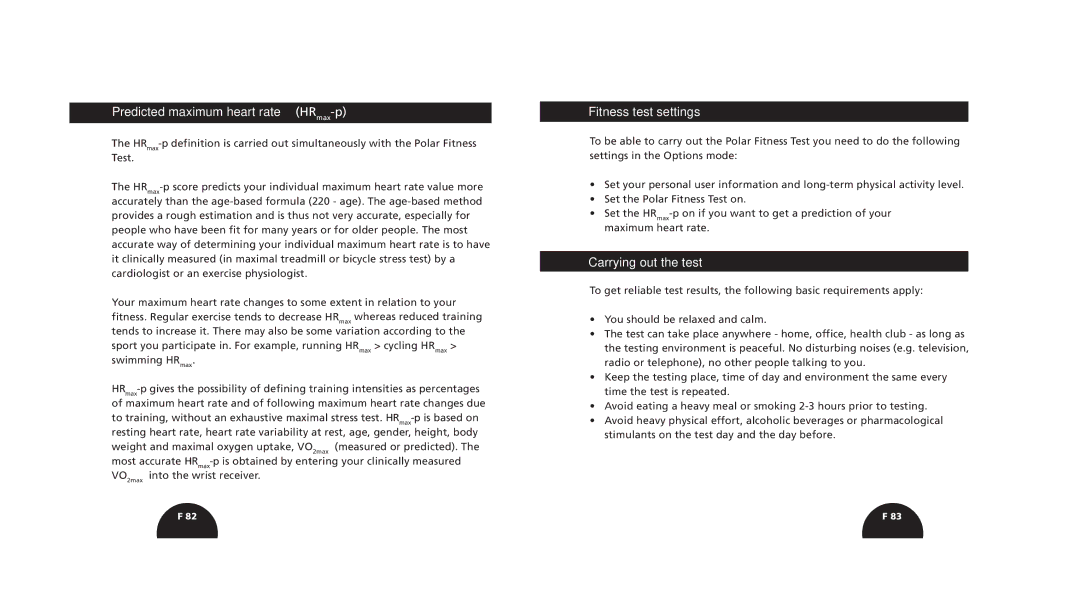
Predicted maximum heart rate (HRmax-p)
The
The
Your maximum heart rate changes to some extent in relation to your fitness. Regular exercise tends to decrease HRmax whereas reduced training tends to increase it. There may also be some variation according to the sport you participate in. For example, running HRmax > cycling HRmax > swimming HRmax.
Fitness test settings
To be able to carry out the Polar Fitness Test you need to do the following settings in the Options mode:
•Set your personal user information and
•Set the Polar Fitness Test on.
•Set the
Carrying out the test
To get reliable test results, the following basic requirements apply:
•You should be relaxed and calm.
•The test can take place anywhere - home, office, health club - as long as the testing environment is peaceful. No disturbing noises (e.g. television, radio or telephone), no other people talking to you.
•Keep the testing place, time of day and environment the same every time the test is repeated.
•Avoid eating a heavy meal or smoking
•Avoid heavy physical effort, alcoholic beverages or pharmacological stimulants on the test day and the day before.
F 82 | F 83 |
